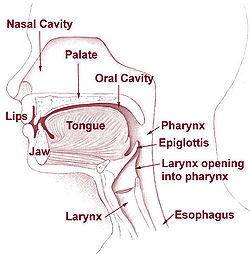 Some studies suggest that fruit and vegetable consumption reduces the risk of allergic disease in children, but results are conflicting.
Some studies suggest that fruit and vegetable consumption reduces the risk of allergic disease in children, but results are conflicting.
This Swedish study investigated the association between current fruit or vegetable intake and allergic disease in 2,000 8-year-old children.
Allergen-specific IgE levels against food and inhalant allergens were obtained at age 8 years.
An inverse relation was observed between total fruit consumption and rhinitis (odds ratio, highest vs lowest quartile, 0.62). No association was observed for total vegetable intake.
In analyses of individual foods, intake of apples/pears and carrots was inversely associated with rhinitis, asthma, and atopic sensitization.
50% of children with rhinitis were sensitized against birch pollen, which may cross-react with apples and carrots.
After exclusion of children who reported food-related allergic symptoms, most of the observed associations became nonsignificant.
On the surface, this sudy confirmed the inverse associations between fruit intake and allergic disease in children. However, disease-related modification of consumption contributed to this association - children with uncontrolled allergic rhinitis simply "learn" to avoid fruits and vegetables due to cross-reactivity observed in pollen-allergy syndrome (oral allergy syndrome).
Cross-reactivity in Pollen-Food Allergy Syndrome (PFAS) or Oral Allergy Syndrome (OAS) (click to enlarge the image).
Which allergen cross-reacts with Bet v1 (birch)?
(A) Ara h1 (peanut)
(B) Mal d 1 (apple)
(C) Ara h3 (peanut)
(D) Bos d (milk)
(E) Gal d (egg)
(F) Hev b2 (latex)
Answer: B, apple. Pollen sensitizations linked to food allergies was first reported with birch pollen and apples 50 years ago.
Fruit and vegetable consumption in relation to allergy: Disease-related modification of consumption? Rosenlund H, Kull I, Pershagen G, Wolk A, Wickman M, Bergström A. J Allergy Clin Immunol. 2011 Jan 6.
Image source: Head and neck. Wikipedia, public domain.
Comments from Twitter:
@Deb_acle: interesting re allergic rhinitis...most ppl noting the correlation would start forcing those kids to eat more offending fruit.
@DrVes: Correct, that's why it's important to have oral allergy syndrome on the differential diagnosis list.